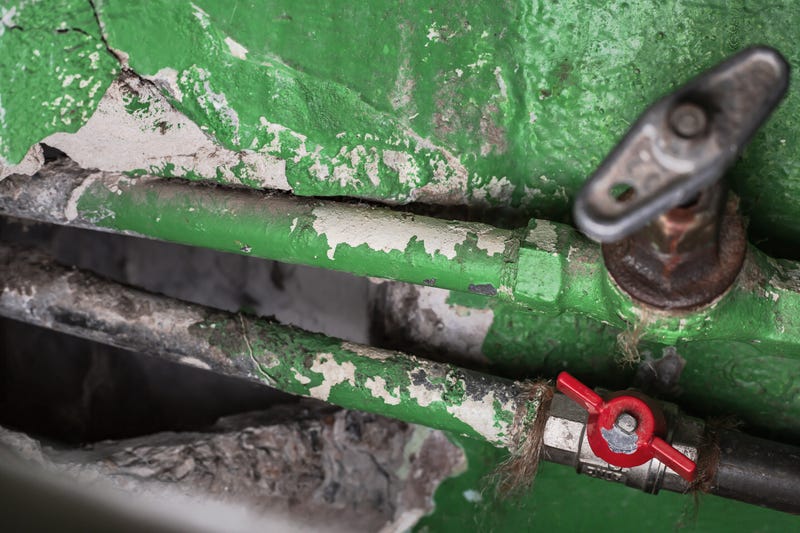
St. Paul homeowners with lead water pipes could soon see them replaced.
More than $14 million in federal funds from the American Rescue Plan have been allocated to the city to help replace the pipes. The money will help fund the replacement costs for 2,000-2,500 households. That means it is just the start in the city’s efforts to replace all lead pipes in the next 10 years, as the St. Paul Regional Water Services says it hopes to replace pipes in 26,000 homes in the next decade. For that, they’ll need roughly $223 million.
“Just as our roads and bridges require repair, maintenance and reinvestment, so too does our water infrastructure require ongoing work to ensure it continues to provide for our community,” St. Paul Mayor Melvin Carter said during a press conference Monday. U.S Senators Amy Klobuchar and Tina Smith, U.S. Congresswoman Betty McCollum and St. Paul city council member Chris Tolbert also spoke.
The lead pipes are found in St. Paul homes that were built before 1926 and in homes built between 1942 and 1947. The installation of lead pipes in new plumbing systems was banned by the federal government in 1986.
In St. Paul, roughly 20 percent of homes still have lead pipes. And they are more prominent for residents in poverty, with approximately 60 percent of the city’s lead pipes in poverty concentrated areas, according to council member Tolbert.
Tolbert said the city was previously unsure of how to deal with this problem in a meaningful way because of the high costs of replacement, calling the ARP funding a “game changer.”
“It gave us a route to get this plan moving,” Tolbert said. The city still needs about $100 million in funding to reach its goal of replacing pipes in 26,000 homes.
Through the Infrastructure Investment and Jobs ACT, St. Paul, and every other Minnesota city, will have the opportunity to apply for $200 million in federal funding that the state has access to put toward lead removal. However, the application will likely be competitive as many other municipalities, most notably Minneapolis and Duluth, also have a large number of pipes to replace.
“We want to make sure, in a state that puts such a high priority on water, that we get clean water not only in St. Paul but across Minnesota,” Klobuchar said.
